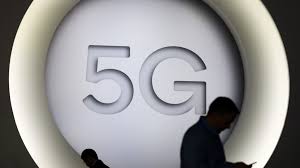Ericsson’s Pervasive Bribery Conduct: The Toxic Mix of Senior Executive Involvement and Third Party Corruption (Part II of II)

Ericsson’s FCPA settlement is in the books (not the books and records). But it casts a significant shadow across the FCPA landscape. A pervasive and systemic culture of bribery is defined to reflect senior executive involvement, winning business at any cost and using bribery as an accepted business strategy.
Ericsson will now pay more than just the price of a $1 billion settlement; it will undergo significant change under a corporate monitor and will suffer serious reputational harms as it continues to operate.
Ericsson’s bribery conduct appears to have involved more than the five countries that are included in the factual statement. Even reviewing the five countries, however, reveals a serious underbelly of corruption and bribery.
The bribery conduct occurred over a 17 year period, beginning in 2000 and continuing to at least 2016. Ericsson used third-party agents and consultants to make bribery payments to government officials, and managed off-the-books slush funds for bribery funding. The agents were often engaged by using sham contracts, paid pursuant to false invoices and avoided any meaningful due diligence or monitoring. The countries involved included Djibouti, China, Vietnam, Indonesia and Kuwait.

In Djibouti, a country located in the Horn of Africa which is bordered by the disputed territory of Somaliland, Ethiopia, and Eritrea, Ericsson paid approximately $2.1 million in bribes to high-ranking government officials to obtain a contract with the state-owned telecommunications company to modernize the telecommunications system. The contract was worth 20 million euros. Ericsson retained a consulting company and conducted a due diligence report that deliberately ignored a spousal relationship between one of the high-ranking government officials and the consulting company. To pay the bribes, Ericsson entered into a sham contract with a consulting company and approved fake invoices to conceal the bribe payments.
In China, between 2000 and 2016, Ericsson paid tens of millions of dollars to various third parties, which was used to fund a travel account to pay for gifts, and travel and entertainment for government officials from state-owned telecommunications companies. Ericsson specifically used the travel expense account to entertain and win business from officials from state-owned telecommunications companies. Ericsson also made payments totaling $31.5 million to third party service providers pursuant to sham contracts for services that were never performed in order to maintain third parties under Ericsson’s controls. Foreign officials from state-owned telecommunications companies submitted false invoices through sales agents and consultants that were used to fund various bribery payments.
Ericsson used the travel account to entertain foreign officials and family members in the United States, luxury cruises in the Caribbean (only 2 hours of the 16-day trip were reserved for business meetings), London, and other locations. Ericsson used fake invoices and payments made to sales agents for purposes of paying for entertainment and travel.

In Vietnam, between 2012 to 2015, Ericsson paid $4.8 million in payments to a consulting company to create off-the-books slush funds in order to pay third parties who would not be able to pass Ericsson’s due diligence processes. The slush funds were used to pay third parties who would not be able to satisfy Ericsson’s third party due diligence process. Similarly, in Indonesia between 2012 to 2015, Ericsson paid approximately $45 million to a consulting company to create an off-the-books slush funds. The payments were improperly booked and recorded.
In Kuwait, between 2011 and 2013, Ericsson agreed to pay $450,000 to a consulting company at the request of a sales agent. The sales agent provided inside information about a tender for a project with Kuwait’s state-owned telecommunications company’s radio access network. Ericsson made a bribery payment of $450,000 for award of the $182 million contract.















